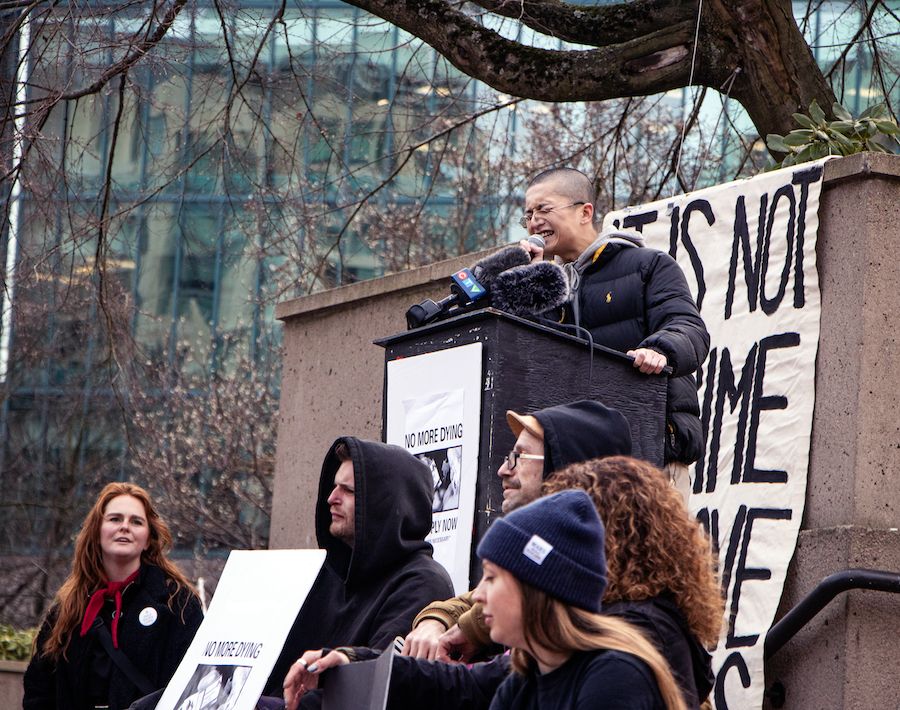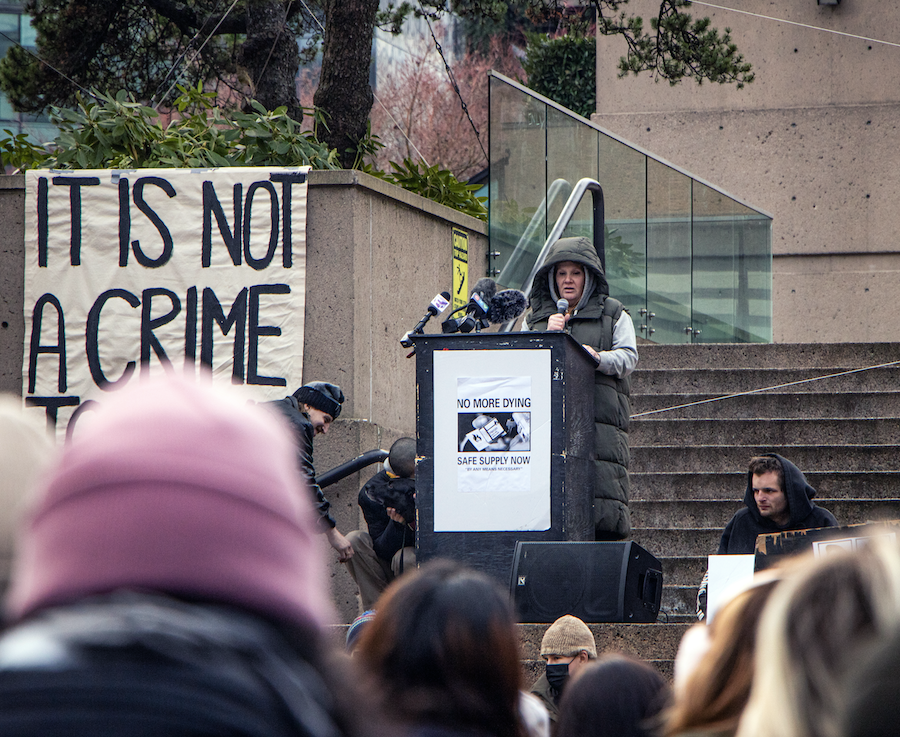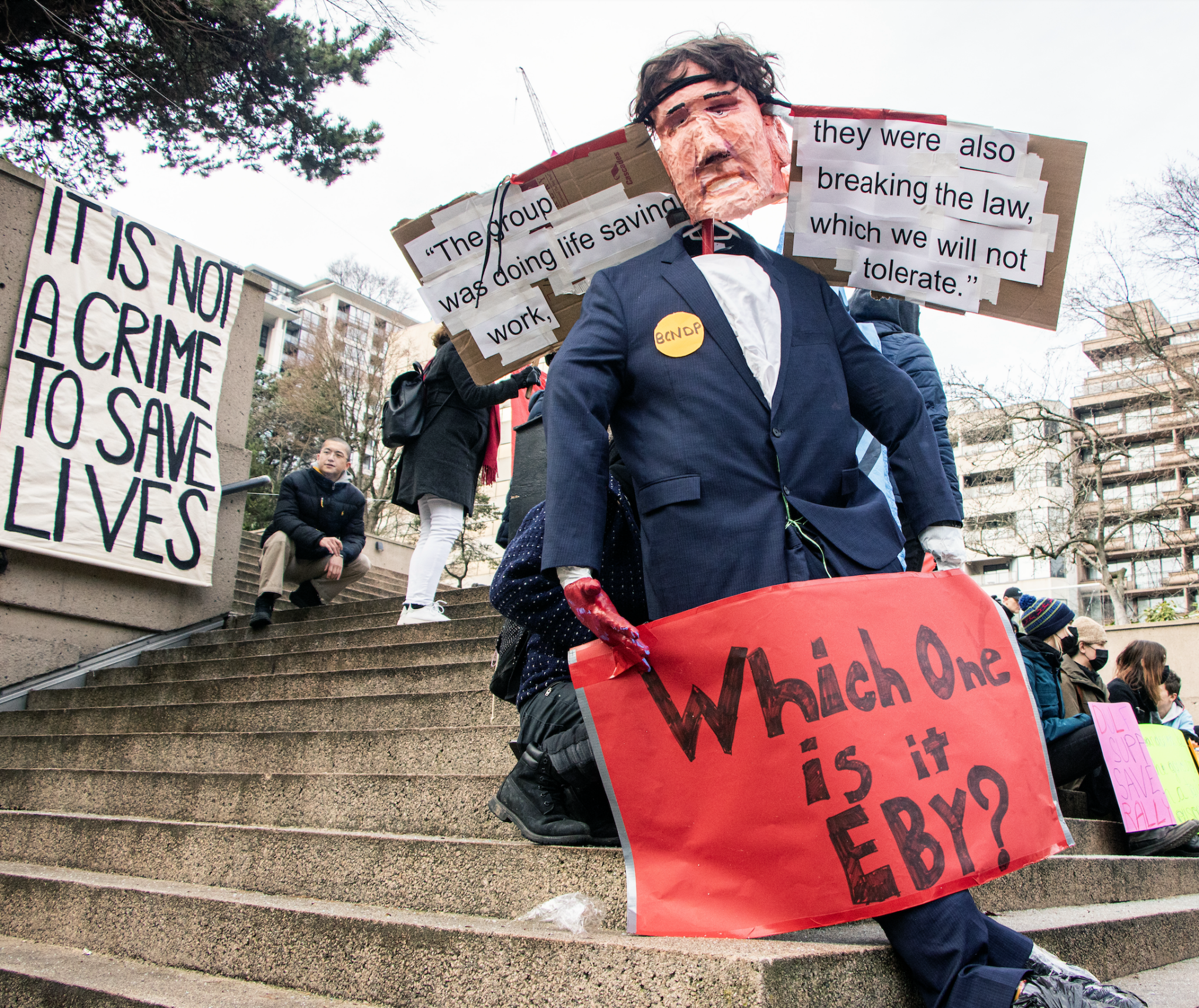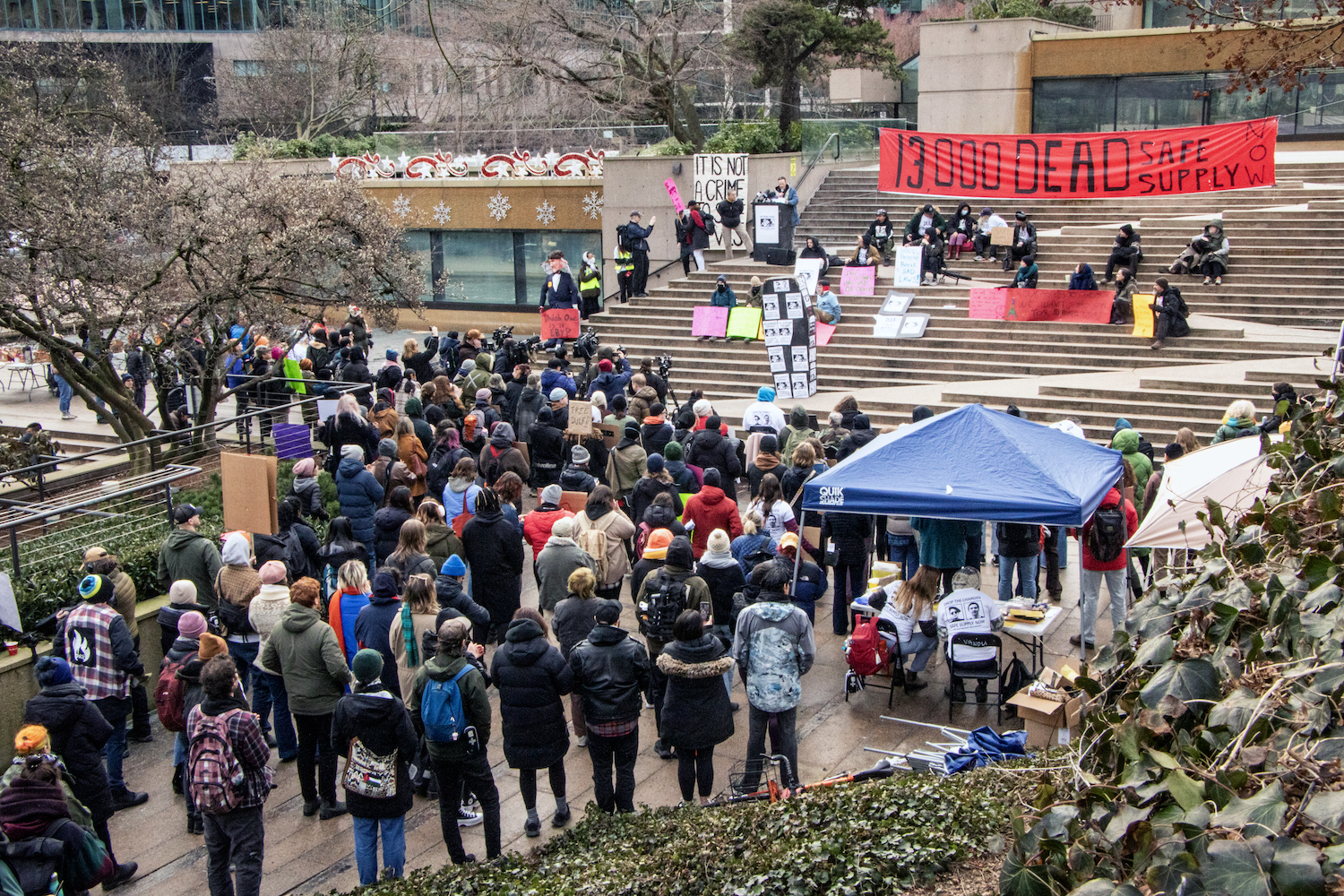Two co-founders of a Vancouver compassion club have yet to face formal charges as the date of what was supposed to be their first court appearance passed.
Eris Nyx and Jeremy Kalicum, who operated the Drug User Liberation Front’s program selling tested heroin, cocaine and methamphetamine to 43 participants, were scheduled for their first court date on January 16, but at the last minute, prosecutors pushed it back.
DULF had applied for an exemption from Canada’s Controlled Drugs and Substances Act to operate a compassion club, but this was ultimately denied by Health Canada. The group went ahead with the compassion club anyway, amid an unprecedented crisis of deaths related to the adulterated drug supply.
Preliminary results from the compassion club, after over a year of operations, showed significant reductions in things like non-fatal overdoses: Six out of seven known overdoses among participants over a three-month period were suspected to involve fentanyl, and there were no known fatal overdoses caused by DULF’s substances. Participants also experienced reductions in negative interactions with police, hospitalizations and drug-related violence.
Under British Columbia law, police don’t press charges in criminal matters. Instead, they recommend charges for review by prosecutors, often called Crown counsel in Canada, who then approve them or decline to pursue them.
“I think that’s exactly why they are slowing down on their prosecution, because they can see what’s going on.”
While the court date postponement means that Nyx and Kalicum remain in legal limbo, their charges neither approved nor dismissed by prosecutors, allies of the Drug User Liberation Front said it could be a sign that the Crown isn’t certain of its legal standing in the case.
Speaking at a January 16 rally to support DULF outside a Vancouver court, Vince Tao, an organizer with Vancouver Area Network of Drug Users (VANDU), noted that there are two questions prosecutors need to answer in weighing whether or not to charge: whether there is a “substantial likelihood of conviction,” and if so, whether it is in the public interest to prosecute.
“They would probably be convicted on [the first question]. Because it’s a technical charge: did they possess drugs? Yes. So, unfortunately, that’s the letter of the law,” Tao told Filter. But he believes that the second criterion is the more important of the two in this case.
“I think that’s exactly why they are slowing down on their prosecution, because they can see what’s going on,” he said.

Vince Tao at the November 16 rally
Tao cited how 600 people attended a Vancouver rally in solidarity with DULF in November, shutting down Hastings Street as they marched to Victory Square. Another 400 people attended the January 16 rally, despite its being held in the middle of a Tuesday.
“Since November, we’ve had plenty of editorials [and] letters,” Tao said, adding that there was international support for DULF.
Some in attendance at the rally were people from Paris who happened to be in Canada. A solidarity rally was also held outside the Canadian embassy in London. In Mexico, a Mexicali supervised consumption site expressed support for DULF. And Irish allies in Belfast and Dublin submitted letters of support to Canadian ambassadors. Solidarity rallies were also held in Calgary, Alberta, and Nelson, a small city in southeastern BC.
“It’s pretty clear that it’s not in the public interest to arrest people for saving lives,” Tao said.
In the days before the court appearance was scheduled, the British Medical Journal published a study showing that provision of pharmaceutical opioids under BC’s prescribed safer supply program cut all-cause mortality by 61 percent and reduced overdose mortality by 55 percent.

Beelee Lee, who has accessed a safe supply of hydromorphone, speaks to the crowd.
The DULF compassion club sought to move safe supply beyond a medical model, which one medical student at the rally, Elaine Hu, said allows doctors to gatekeep the life-saving measure. Hu told Filter that doctors can improve the lives and health of drug users, but that poor applications of health care—including gatekeeping—can cause harm.
The crowd at the January 16 rally was highly engaged, with their call-and-response slogans—including “Safe supply, or we die” and “Who saves us? We Save us”—filling Robson Square outside the courthouse.
And when attendees called “shame” on the actions of police and the governing BC New Democratic Party, the event’s emcee, Herb Varley, was quick to respond: “They have no shame!”

A papier mâché dummy of BC Premier David Eby, depicting his contradictory quotes about DULF
Varley, who is Nisga’a and Nuu-chah-nulth, is an organizer around Downtown Eastside issues, including housing and drug policy, as well as on Indigenous issues, like solidarity actions for Wet’suwet’en land defenders opposing the Coastal Gaslink pipeline in Northern BC.
He told the crowd that he’d started his day getting detained by police because he “matched a description,” and situated the drug war in colonization and capitalism.
“I personally don’t think that was a mistake,” Varley said of his being put in handcuffs that morning, pointing to his experience with the Wet’suwet’en actions.
“I was kind of a front-facing person for that, and I was harassed by cops I didn’t even know,” he told Filter. “They would know me on-site, by first name, and they would harass me, day by day by day. So the fact that I was slated to emcee this gathering today—it may be a coincidence, but I wouldn’t be surprised if it wasn’t.”
Varley added that the issues facing the Downtown Eastside, including those DULF had sought to address with its compassion club, “are not bugs of the system.”
Instead, he said, “They are features.”
All photographs by Dustin Godfrey





Show Comments